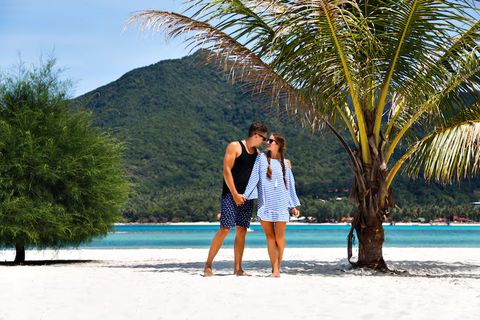
Adults Only All Inclusive Vacations: Essential Resort Guide and Helpful Advice
Adults-only all-inclusive vacations—where accommodation, meals, drinks, and many activities are bundled and children are excluded—offer a distinct travel option for adults seeking a more relaxed, adult-centric environment. They exist because there is a demand for travel experiences tailored to adults: couples on romantic getaways, friends seeking restful escape, or individuals desiring a quieter resort atmosphere without the presence or activities of children. The “all-inclusive” model simplifies the expense and planning by bringing most services under a single pricing umbrella, reducing surprises and additional bills.

What this option entails and why it exists
In an adults-only all-inclusive resort, guests enjoy access to lodging, eating and drinking (often many restaurants and bars), recreational facilities (such as pools, spas, sometimes golf or water sport), entertainment, and other amenities—all included in the upfront package. The restriction to adults (for example 18+ or 21+) means that children are not accommodated, which is marketed as offering greater peace, fewer disturbances, and a different ambience.
The model exists because:
-
Many adult travellers are seeking fewer disruptions and a more mature atmosphere.
-
All-inclusive structures appeal to people who want clarity in what their vacation includes.
-
Resorts have responded by carving out adult-only segments to differentiate their offer and appeal to a specific niche of the market.
Why this topic matters today and whom it affects
The significance of adults-only all-inclusive vacations is growing for several reasons. First, as travel becomes more accessible globally, more adults are seeking curated experiences rather than general mass-market resorts. The adult-only and all-inclusive combination offers a clear choice for those wanting both convenience and a specific atmosphere.
It affects:
-
Couples on honeymoon or romantic breaks who prefer an environment without children.
-
Groups of friends or solo adult travellers who want to relax or socialise without family-oriented distractions.
-
The resort and hospitality industry, which must adapt to changing consumer expectations (quiet, wellness, luxury, niche offerings).
It solves problems such as: -
Worry about unexpected extra costs (the all-inclusive structure reduces hidden charges).
-
Need for a peaceful or more adult-focused environment (the adults-only rule eliminates child-related noise or activities).
-
Desire for a streamlined holiday experience (one payment covers most services).
In short, for adult travellers wanting simplicity, clarity, and a certain ambience, combining adults-only with all-inclusive can deliver.
Recent updates: Trends, changes and news (2024-2025)
There are several noteworthy trends and recent changes in this space:
-
In 2025, global travel platforms reported that all-inclusive vacations are expanding beyond traditional beach destinations, with more resorts opening in Europe, Asia, and the Americas.
-
The European market has seen an increase in adults-only all-inclusive resorts, focusing on design, wellness, and sustainability rather than budget-only options.
-
Several resorts in North America and the Caribbean have transitioned to adults-only models to create more serene environments for couples and solo adults.
-
In 2025, discussions in some European countries questioned the legality and ethics of child-free or adult-only establishments, sparking public debate about inclusivity and business freedom.
These developments reflect that the market is evolving: more adults-only offerings, higher levels of luxury and wellness orientation, and increasing regulatory or social scrutiny of the adult-only concept.
Relevant laws, regulations and policies
When considering an adults-only all-inclusive vacation, key regulatory areas to be aware of include:
-
Accommodation classification and tourism regulation: Many countries require resorts and hotels to meet official tourism-board classification standards, which outline service levels, facilities, and compliance requirements.
-
State or regional tourism laws: Some regions require accommodation establishments to register or obtain licences, ensuring consumer protection and service quality.
-
Labour, property, and franchising laws: Resort operations often involve employee regulations, franchise agreements, intellectual property rights, and land-use or lease requirements.
-
Alcohol licensing: Since many all-inclusive resorts include alcoholic beverages, local liquor laws play an important role. In some areas, alcohol sales or consumption may be restricted or regulated by licence type or hours.
-
Non-discrimination and child-exclusion policies: In some jurisdictions, exclusion of children may be subject to review or legal debate. For example, ongoing discussions in parts of Europe in 2025 highlight potential regulatory interest in child-free establishments.
For travellers and operators alike, understanding the specific regulations in the destination country or state is essential for a lawful and smooth experience.
Helpful tools and resources
When planning or evaluating an adults-only all-inclusive resort vacation, the following tools and resources can be useful:
-
Resort comparison platforms: Use travel and hotel aggregator sites that allow filtering by “adults-only” and “all-inclusive.”
-
Travel budgeting calculators: Tools that compare the total price of an all-inclusive package versus paying individually for lodging, meals, and activities.
-
Official tourism board websites: National or state tourism departments often provide hotel classification systems and guidelines to help identify licensed and compliant resorts.
-
All-inclusive coverage checklists:
Category Example inclusions Example exclusions Meals Buffet & à la carte dining Specialty restaurants Drinks Standard alcoholic & soft beverages Premium brands Activities Non-motorised water sports, shows Spa treatments Transfers Airport transfers Private car hire -
Travel review databases: Read verified guest reviews to understand resort atmosphere, service quality, and consistency.
-
Packing and policy guides: These ensure guests understand age restrictions (18+ or 21+), resort etiquette, and local customs.
Using these resources helps travellers understand what is included, what adult-only implies, and how to select a resort that suits their preferences.
Frequently asked questions
Q1. What does “all-inclusive” actually mean in this context?
A: “All-inclusive” typically means that your resort rate covers lodging, meals (often buffet and à la carte restaurants), drinks (soft and alcoholic, depending on policy), certain activities, entertainment, and sometimes transfers or taxes. It’s important to check exactly what is included and what may cost extra (such as premium drinks or excursions).
Q2. What age qualifies as “adults-only”?
A: That depends on the property. Many resorts set the minimum age at 18, others at 21. Always verify the specific policy before booking to avoid issues upon arrival.
Q3. Are adults-only all-inclusive resorts more expensive than family-friendly ones?
A: Not necessarily. While some adults-only resorts target the luxury segment, others remain competitively priced. The adult-only label primarily affects the guest experience and resort atmosphere rather than the price itself.
Q4. How do I know what is included in the all-inclusive package?
A: Request a detailed list from the resort. Check for inclusions such as meals, drinks, entertainment, transfers, and taxes. Ask about optional extras like spa treatments or off-site tours.
Q5. Are there any risks or things to watch out for?
A: Yes. Consider the following:
-
“All-inclusive” sometimes excludes premium services or imported beverages.
-
“Adults-only” does not always guarantee a quiet or luxury experience—reviews can help gauge ambience.
-
Hidden surcharges or limited restaurant options may apply.
-
Local alcohol or licensing laws can affect availability.
-
Ensure your travel insurance and cancellation policy are compatible with the booking type.
Conclusion
Adults-only all-inclusive vacations are an increasingly popular travel category offering convenience, predictability, and an atmosphere designed for mature travellers. By combining adult-only settings with all-inclusive services, these resorts provide a focused environment for couples, groups of friends, or solo adults who value peace, comfort, and simplicity.










